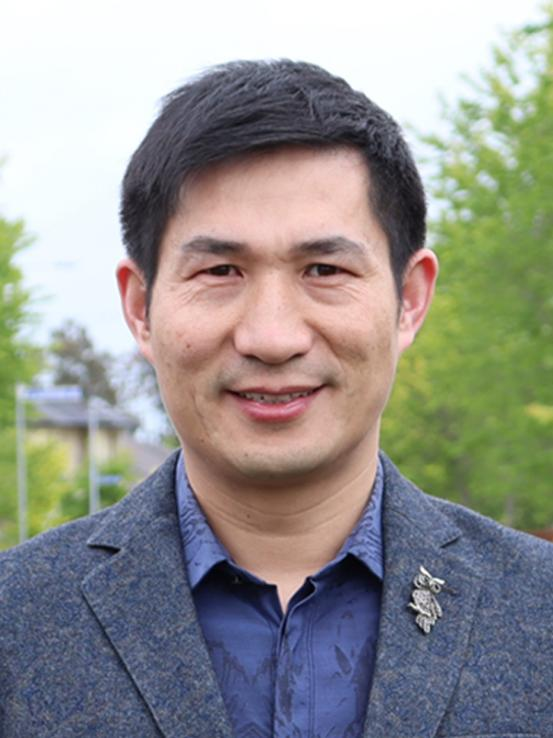|
General Enrollment Regulations of Summer School Program "Artificial Intelligence Innovation" 2025
作者:
发布日期:2025-05-19
浏览次数:
About the Program To enhance students' understanding of cutting-edge technologies in artificial intelligence, cultivate their innovative thinking, and develop their ability to solve real-world problems, Zhejiang University of Technology, in collaboration with RMIT University (QS123), has jointly offered the summer school program "Artificial Intelligence Innovation". This course will systematically cover the fundamental theories and latest advancements in the field of Artificial Intelligence (AI), with an in-depth exploration of AI applications across various industries and its profound impact on society. The content emphasizes the integration of theory and practice, addressing key topics such as AI ethics and social responsibility. The teaching approach incorporates diverse methods, including case studies, project-based learning, design thinking workshops, team collaboration, technology demonstrations, and frontier discussions. These methods aim to equip students with AI tools and techniques for solving complex problems while inspiring innovative thinking.
General Information 1. Time and location From July 21st to August 8th (includes online self-study from July 21st to July 25th) Computer Science and technology Building, Pingfeng Campus. 2. Language: English 3. Class Size: 45 Chinese Students + 5 International undergraduate students 4. Course credits: General elective course with 2 credits. 5. Course fees: No teaching fees. The program is funded by ZJUT International Summer School Program. Eligibility Applicants for the program should fulfill the following requirements: lOpens to second- and third-year undergraduate students, who have already completed courses in advanced mathematics, linear algebra, probability and statistics. lPreliminary knowledge of artificial intelligence theory and Python programming lStrong learning initiative and adaptability, good English communication skills and teamwork awareness.
Curriculum 1. Week 1 - Online Teaching: Overview and fundamentals of artificial intelligence, trends in cutting-edge technology development, AI applications, ethics and morality, and the societal impact of artificial intelligence. Through this learning process, students will gain foundational knowledge in the field of AI and understand the latest technological advancements. 2. Weeks 2 and 3 - Onsite Teaching: Computational thinking and problem-solving, innovation and research experience, project practice, and innovative design. This phase aims to cultivate students' innovative thinking and problem-solving abilities. Faculties
Dr. Feng Xia is Professor in School of Computing Technologies, RMIT University, Australia. He is/was Associate/Guest Editor of over 20 journals (e.g., TIST, TKDD, TOMM, TAI, TNNLS, TITS, TETC, and TII). He has served as the General Chair, PC Chair, Area Chair, Workshop Chair, or Publicity Chair of over 30 conferences and workshops, and (Senior) PC Member of over 100 conferences (e.g., IJCAI, AAAI, ICLR, KDD, WWW/TheWebConf, and NetSci). Dr. Xia has authored/co-authored over 300 scientific papers in journals and conferences (e.g., IEEE TAI, TKDE, TNNLS, TC, TMC, TBD, TCSS, TNSE, TETCI, TETC, THMS, TVT, TITS, ACM TKDD, TIST, TWEB, TOMM; IJCAI, AAAI, NeurIPS, ICLR, KDD, WWW, MM, SIGIR, EMNLP, and INFOCOM). He has an h-index of 75 and a total of more than 23,000 citations to his work according to Google Scholar. He was recognized as a Clarivate Highly Cited Researcher (2019) and a ScholarGPS Highly Ranked Scholar (2024). Dr. Xia received a number of prestigious awards, including e.g. IEEE Transactions on Neural Networks and Learning Systems Outstanding Associate Editor of 2023-2024, IEEE Vehicular Technology Society 2020 Best Land Transportation Paper Award, ACM/IEEE JCDL 2020 The Vannevar Bush Best Paper Honorable Mention, and WWW 2017 Best Demo Award. He has been invited as Keynote Speaker at several international conferences, and delivered a number of Invited Talks at international conferences and many universities worldwide. He is Vice-Chair of IEEE Task Force on Learning for Graphs. His research interests include artificial intelligence, graph learning, brain, robotics, and cyber-physical systems. He is a Senior Member of IEEE and ACM, and an ACM Distinguished Speaker. Personal homepage: https://www.xia.ai
Chinese Responsible Teacher: Professor Xiangjie Kong is a professor at the School of Computer Science and Technology, Zhejiang University of Technology, currently serving as the Deputy Dean of the School of Computer Science. He is a recipient of the Zhejiang Provincial Outstanding Youth Fund, a Qianjiang Distinguished Expert in Hangzhou, and the founder and director of the Urban Science and Social Computing Laboratory at Zhejiang University of Technology. Professor Kong is a distinguished member of the China Computer Federation (CCF), a senior member of IEEE, a member of ACM, a member of the SigmaXi Scientific Research Honor Society, an executive member of the CCF Information Systems Technical Committee, an executive member of the CCF Pervasive Computing Technical Committee, a member of the Chinese Association of Automation's Parallel Intelligence Technical Committee, and a member of the Chinese Information Processing Society's Affective Computing Technical Committee. He has served as an editor for international SCI journals such as Wireless Communications and Computing, PeerJ Computer Science, KSII Transactions on Internet and Information Systems, and Electronics. He has also been a (chief) guest editor for special issues of several international SCI journals, including Pervasive and Mobile Computing, IEEE Access, and the International Journal of Distributed Sensor Networks. Professor Kong has been invited to chair over 10 international conferences, such as CCVPR, and has delivered keynote speeches at more than 10 international conferences, including IEEE CCCI. He has served on the program committees (TPC) of numerous international conferences, such as IJCAI, KDD, IEEE BigData, IJCNN, COMPLEX NETWORKS, IEEE UIC, and IEEE ICC. Additionally, he is a reviewer for top domestic and international journals, including IEEE TKDE, IEEE TMC, IEEE TNNLS, IEEE TNSE, IEEE TII, IEEE IoTJ, IEEE COMMUNMAG, IEEE NETW, IEEE TITS, TCJ, JASIST, and the Journal of Computer Science. Dr. Mengmeng Wang is a specially appointed associate researcher who completed her bachelor's, master's, and doctoral studies at Zhejiang University. She is a recipient of the Zhejiang Association for Science and Technology's Youth Talent Support Program. Dr. Wang has led projects funded by the National Natural Science Foundation of China (Youth Program) and the Zhejiang Provincial Natural Science Foundation (Youth Program). Her research focuses on intelligent perception in robotics, computer vision, multimodal perception, and robotic arm grasping. Dr. Wang has published over 50 high-level journal and conference papers in internationally renowned journals and conferences in robotics and artificial intelligence, such as IEEE TPAMI, TIP, JMLR, TMM, PR, TNNLS, TMech, and NeurIPS, CVPR, ICCV, ICLR, AAAI, ICRA, IROS, and 3DV. Her work has been cited more than 4,000 times on Google Scholar, with an h-index of 24, and includes two ESI highly cited papers. She has received the Zhejiang Provincial Science and Technology Progress First Prize and the Google Women TechMaker Award. She has served as an area chair and program committee member for conferences such as ICCV, as well as being a member of the CCF professional committees, an IEEE member, and an ACM member. Dr. Jiaxin Du, Ph.D. from Dalian University of Technology and is currently a faculty member at the School of Computer Science, serving as a master's supervisor. She has guided students to win the third prize in the Zhejiang University of Technology E-commerce Competition. Dr. Du has led projects funded by the National Natural Science Foundation of China (Youth Program), the Zhejiang Provincial Natural Science Foundation (Exploration Youth Program), and a subproject of the Zhejiang Provincial Leading Goose Project. She has also participated in several national and provincial science and technology projects. Dr. Du serves as a reviewer for multiple top-tier domestic and international journals, including TMC and IEEE IoTJ, and as a program committee member for conferences such as WASA. She has published over 20 academic papers.
How to Apply Click and download your Application Form on the bottom, submitted to the cloud drive ( Link to submit)before 5:00 pm June 13th. Annex: Contact Information: If you have any course consultation, you can contact Dr. Mengmeng Wang(Email: wangmengmeng@zjut.edu.cn) A shortlist of no more than 5 International undergraduate students will be finalized in mid-June. Please wait for Ms. Sue Yang's notice. Tel: 85290061. |




